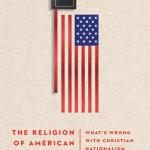This post is part of a series walking through the third volume of Abraham Kuyper’s Common Grace
[I think there should be a good π joke to make somewhere in today’s post, but I’ve not found it yet…]
Just what do the words “church” and “state” even mean? This must be defined in order avoid confusion, which is the source of countless unfortunate disputes.
For our purposes, when we’re talking about “church” we mean the “institution”, not the “organism.” So we’re not talking about “the Kingdom of God” generally. This will therefore exclude things like Christian schools, charitable organizations, etc. It means primarily the institution we attend on Sunday mornings and are active members of. Obviously the state interacts with each of these other kinds of institutions as well, that’s just not our focus here.
More specifically,
“we understand the church as institution to be a group of persons who live in the same ecclesiastical association and who bring this association to expression in a written confession and in a specific church order.” (115)
We differ with other believers on issues of baptism, church polity, etc, but again that’s not relevant when we’re talking about the relationship between the state and the church as an institution. The state doesn’t really care whether it’s regulating Baptists, Presbyterians, etc…
The “state” is not the “ideal state or… an abstract concept of state,” but instead is
“a people group living under a specific form of government, in such a way that this government, under the rule of established law, exercises authority over the citizens, bears the sword for that purpose, and when necessary enforces its will vis-à-vis the citizens.” (115-116)
So Kuyper is going to be using “state” in the narrow sense to refer primarily to the “government,” not in the broader sense of all the components that go into a nation.
Both church and state are post-Fall institutions. And yes, Kuyper does intend to include the church as a post-Fall institution, since election can only come after sin. This is especially true for the church as an institution–it springs from grace and is opposed to sin. “The state or government runs parallel with the church” in that it also exists “on the basis of grace.” (117) Many deny this, claiming that government is a human institution.
We Reformed generally see government as arising post-Flood based on Genesis 9:6, and so (Kuyper tells us in an aside) we should be pro-capital punishment as it is the basis of political sovereignty. The broader point is that both church and state exist because of and against sin. “They are institutions of divine origin that serve to combat sin and mitigate its consequences.” (118)
Neither church nor state is “organic”, but rather each is an artificial addition to life. They both perform the function of a cast on a broken arm. As such, both are temporary and limited in both purpose and scope.
“There was a time when they did not exist, and there will come a time when they no longer exist. They are transient and one day will cease to exist. In the new heaven and new earth neither church nor state will be found. Everyone can agree with this, as long as everyone keeps in mind that in this discussion church refers to the institution, not the organism. For a church with a confession and statutes would be unthinkable in the eschaton and in the kingdom of glory. We no longer have the need to confess when there is no one to contradict us.” (118-119)
Yet, there are differences between church and state as well. The church is based on particular grace, while the state is based on common grace. Kuyper refers us to his earlier arguments on that. There are also three further differences:
- The state is for everyone, while the church is only for some people. So the state is necessary to life in this world in a way that the church is not.
- Government evolves over time from the old patriarchy into what we’ve got now. The church comes at once into the world after Pentecost.
- The state “coerces”, while the church “only bears witness.” The church “does not rule; rather, it suffers.” (122)
More on church and state in the next chapter.
Dr. Coyle Neal is co-host of the City of Man Podcast an Amazon Associate (which is linked in this blog), and an Associate Professor of Political Science at Southwest Baptist University in Bolivar, MO













